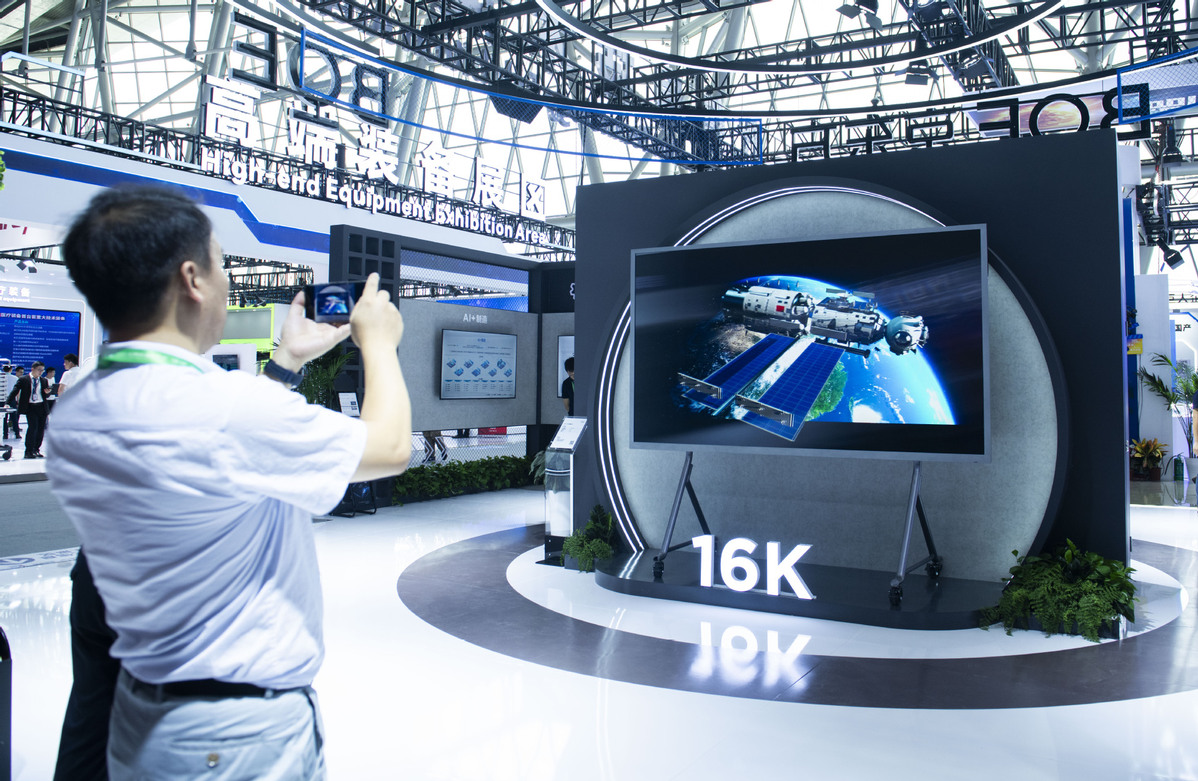Hefei charging ahead as tech, innovative hub
Fast-emerging manufacturing center excels in NEVs, integrated circuits


Top Chinese manufacturers have shown growing reliance on research and development and cutting-edge technologies as new growth drivers, government officials, company executives and industry experts said on Friday.
They made the comments as the 2024 World Manufacturing Convention kicked off on Friday in Hefei, capital of Anhui province, an emerging manufacturing hub that British magazine The Economist dubbed "an unlikely tech cluster (that) exemplifies China's economic vision".
According to a report launched at the conference by the China Enterprise Confederation and the China Enterprise Directors Association, innovation played a stronger role in driving business growth of the top 500 Chinese manufacturing firms last year.
In 2023, the top 500 Chinese manufacturers increased their R&D spending by 12.51 percent to 1.23 trillion yuan ($174 billion). Their R&D intensity also reached 2.37 percent during the period, up 0.04 percentage point year-on-year.
As they move to become more tech-intensive, the top 500 Chinese manufacturing firms posted a collective revenue of 52.01 trillion yuan last year, up 1.86 percent year-on-year.
This stands in stark contrast to global trends, where revenue of the world's top 500 manufacturers declined by 4.17 percent year-on-year and US manufacturing giants saw an even steeper fall of 4.36 percent in revenue last year, the report said.
Xin Guobin, vice-minister of industry and information technology, said: "China is seeing innovation becoming the core engine of new industrialization. The integration of technological breakthroughs and industrial applications has become vital for enhancing productivity and securing China's position in global supply chains."
As China seeks to embed itself deeper into global industrial supply chains, Neil Bush, chairman of the George H.W. Bush Foundation for US-China Relations, called for more efforts to "drive innovation transformation and international cooperation for manufacturing".
Powered by companies increasingly reliant on smart manufacturing, Liang Yanshun, Party secretary of Anhui, said that the province has seen more innovation-led technologies integrating into the industrial economy.
"Our goal is to build a modern industrial system led by advanced manufacturing, and position Anhui as a key player in the global value chain," Liang said.
Recalling that the US and China have both benefited tremendously from more bilateral trade, Bush said: "Manufacturing is no longer confined to national borders … Countries that embrace innovation while working together can unlock new potential and drive economic growth by sharing research and best practices in technical advancements. Countries that relied solely on local manufacturing faced significant challenges."
Therefore, he called for the building of global innovation hubs, the formation of strategic partnerships between companies, universities and governments, and more exchanges, to create a stronger international innovation transformation.
Zhang Qingwei, vice-chairman of the Standing Committee of the National People's Congress, China's top legislature, echoed this sentiment, saying that China is both a participant and beneficiary of global industrial supply chains, as well as a firm defender and builder of these chains.
"China will integrate more deeply into the global industrial and supply chain system, firmly oppose protectionism and any form of decoupling, and maintain the global public good of industrial and supply chains," Zhang said.
Amid these shifts, Anhui, for decades overshadowed by coastal regions in terms of growth, has emerged in recent years at the forefront of emerging sectors such as new energy vehicles, integrated circuits and advanced display technologies.
In fact, one-fifth of the country's photovoltaic modules, one-seventh of its lithium-ion batteries and one-eighth of its NEVs are now produced in the province.
Yang Yuanqing, chairman and CEO of Lenovo Group, said that the company has built the world's largest smart device R&D and manufacturing base in Hefei. Industrial output of this base has exceeded 100 billion yuan for four consecutive years.
"AI is not just enhancing efficiency — it's redefining what's possible in modern manufacturing. The future of manufacturing lies in our ability to innovate and scale rapidly," Yang said.
He added that Lenovo's factory in Hefei now handles over 5,000 orders a day, 80 percent of which are customized. But AI has helped reduce scheduling times from six hours to just 1.5 minutes, leading to a 23 percent production boost, he said.




































